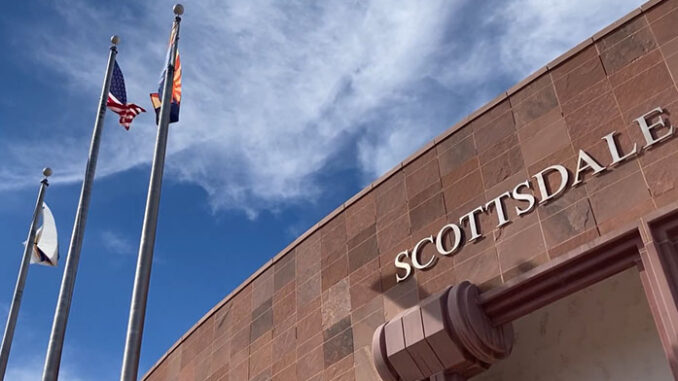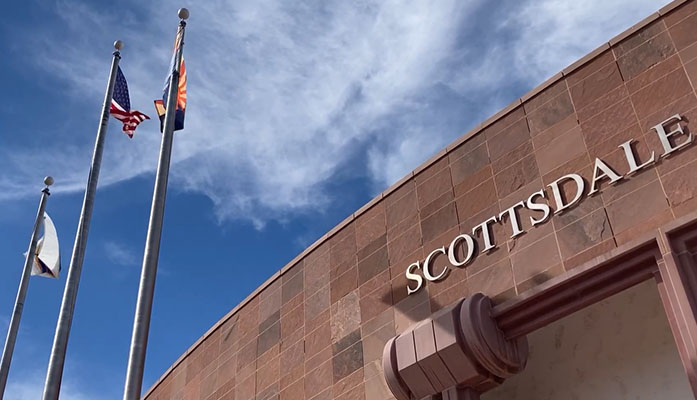
On Monday, an Arizona Appellate Court ruled against the City of Scottsdale’s sales tax proposition. The ruling results in the removal of the measure from the 2024 general election ballot.
The Goldwater Institute sued the city on behalf of three taxpayers.
“Today’s decision vindicates the rights of taxpayers who deserve honesty from their local officials — especially when it comes to the money hardworking Arizonans are required to fork over to the government,” stated the Goldwater Institute in a press release. “Local leaders in Scottsdale and across Arizona should consider themselves warned: public officials should not be in the business of deceiving taxpayers so they’ll vote to raise taxes on themselves.”
“Today, the Arizona Court of Appeals correctly ruled that Prop. 490, a 1.2 billion dollar tax increase, deceptively marketed as a tax cut, was unlawful. Scottsdale residents and families deserve honesty out of their councilmembers, not deceit,” said Adam Kwasman, a Scottsdale City Council candidate. “It is unfortunate that our parks and our public safety is forced to suffer because politicians refuse to listen to our concerns about the truthfulness of their language. We deserve better. Now we must come together to find a legal and practical solution that fully funds Scottsdale’s parks, preserve, and public safety, while always being transparent with the community.”
Today, the Arizona Court of Appeals correctly ruled that Prop. 490, a 1.2 billion dollar tax increase, deceptively marketed as a tax cut, was unlawful. Scottsdale residents and families deserve honesty out of their councilmembers, not deceit. It is unfortunate that our parks and…
— Adam Kwasman (@AdamKwasman) August 19, 2024
The Goldwater Institute argued that the city of Scottsdale was illegally deceiving voters about a proposed sales tax hike—falsely claiming that the tax increase is actually a tax reduction so that residents will approve it in November.
Arizona law prohibits such misleading ballot measures.
Scottsdale referred to the ballot a 0.15% sales tax to support city parks that would start on July 1, 2025. Meanwhile, an old sales tax of 0.20% for land purchases ends on June 30, 2025.
According to Goldwater, Scottsdale is using the expiration of the old tax to pitch the new one to voters as a tax reduction. The city claims a “yes” vote would replace and reduce the current 0.20% sales tax, while a “no” vote would deny the city to ability to replace and reduce that 0.20% tax. But voters will actually pay a lower sales tax rate if they vote “no” on the new sales tax than if they vote “yes.”
In other words, says Goldwater, the city is trying to convince voters to approve a sales tax hike by framing it as a tax cut.
The Arizona Supreme Court has consistently held that ballot measures cannot deceive voters. “Having misleading measures on the ballot would undermine the fundamental fairness of an electoral system that asks voters to approve certain measures,” Goldwater Institute Staff Attorney Adam Shelton said. “Whether or not the new tax is good policy is besides the point—a city must accurately and unequivocally tell voters they are increasing taxes when a ‘yes’ vote would lead to a higher tax than a ‘no’ vote.”
RELATED ARTICLE:

